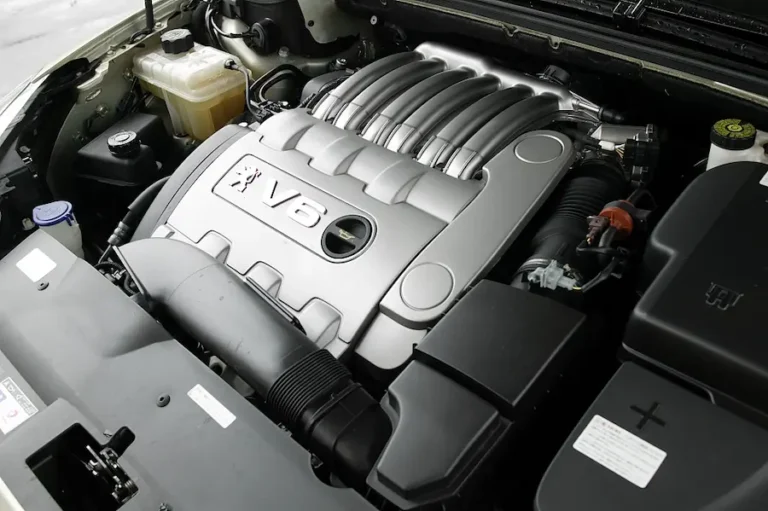How to Fix White Smoke in Diesel Engines

Key Takeaways:
- White smoke in diesel engines often points to problems like fuel injector failure, coolant leaks, or cold start issues.
- Diagnosing the cause of white smoke requires a careful approach, starting with visual inspections and using diagnostic tools.
- Regular maintenance of the fuel and cooling systems can prevent most white smoke-related problems.
- Spotting the issue early and fixing it quickly can save you from costly repairs down the road.
- Professional help is essential for major problems like coolant leaks or turbocharger failures, while smaller issues can often be fixed DIY.
Introduction:
When your diesel engine starts blowing white smoke, it’s easy to get worried—and for good reason. That puff of smoke is often a sign that something’s not right under the hood. I’ve dealt with this more times than I can count, and I’ve learned that while some causes are harmless, others need immediate attention to keep your engine in good shape. Whether it’s from a cold start or a more serious issue like a coolant leak, understanding what’s going on can help you avoid costly repairs. I’m writing this guide to help you spot, diagnose, and fix white smoke in your diesel engine before it becomes a bigger problem.
1. Causes of White Smoke in Diesel Engines
White smoke is usually a sign that something’s not working quite right in the combustion process. From my experience, the faster you figure out the cause, the better chance you have of avoiding expensive damage.
a. Common Fuel System Issues:
- Incorrect fuel timing: If fuel is injected too early or too late, it’s like showing up late to a party—it just doesn’t work out. The engine won’t burn the fuel properly, and you’ll see white smoke.
- Fuel contamination: Water or contaminants in the fuel can throw off the combustion process, leading to white smoke. I’ve seen this problem overlooked more times than I’d like to admit.
- Leaking fuel injectors: Faulty injectors that spray too much or too little fuel can cause white smoke. A quick cleaning or replacement can usually solve this issue.
b. Cold Start Conditions:
- Temperature-related issues: In colder weather, it’s common for diesel engines to puff a bit of white smoke because the air-fuel mixture doesn’t combust perfectly right away.
- Delayed fuel combustion: If you see smoke during startup but it clears once the engine is warm, that’s usually normal. But if it sticks around, you might have a bigger problem on your hands.
c. Coolant Leaks and Engine Overheating:
- Blown head gasket: This is one of the more serious causes of white smoke that I’ve run into. A blown head gasket can allow coolant to leak into the combustion chamber, creating thick, white smoke. Ignoring this can lead to much worse damage.
- Cracked engine block or cylinder head: These are serious issues that can also cause coolant to leak into the combustion chamber. You’ll need to address this quickly to avoid major overheating.
2. Diagnosing White Smoke in Diesel Engines
Figuring out what’s causing the white smoke isn’t always easy, but starting with the basics usually leads to a quick diagnosis.
a. Assessing the Situation:
- Time of smoke occurrence: Is the white smoke only showing up at startup or does it stick around? The timing can tell you a lot about what’s going on.
- Amount and intensity: If the smoke is light and fades away, it might just be a cold start issue. Thick smoke that doesn’t go away usually signals a more serious problem.
b. Using Diagnostic Tools:
- Onboard diagnostic system (OBD-II): Using an OBD-II scanner can give you error codes that point to specific problems in the fuel or cooling system.
- Compression tests and leak-down tests: These tests are handy for identifying internal engine problems like poor cylinder sealing or head gasket failure.
3. Immediate Steps to Address White Smoke
Whenever I notice white smoke coming from the exhaust, I run through these quick checks before diving deeper into repairs.
a. Check Fuel Injectors:
- Clean or service injectors: Dirty fuel injectors can cause white smoke, and a good injector cleaner often solves the problem.
- Replace faulty injectors: If cleaning doesn’t work, replacing worn-out injectors is usually the next step. This fix has worked for me more than once.
b. Inspect the Coolant System:
- Look for leaks: If there’s white smoke and it smells sweet, you’re probably burning coolant. Check for leaks around the engine block and radiator.
- Pressure test the radiator: A pressure test can help you find leaks in the cooling system. It’s a quick way to see if coolant is sneaking into the combustion chamber.
c. Address Fuel Contamination:
- Drain and replace fuel: If there’s water or contaminants in the fuel, draining and refilling the tank can clear up the white smoke.
- Replace fuel filters: A clogged fuel filter can mess with fuel flow and cause white smoke, so replacing it is a simple and effective fix.
4. Fuel Injection System Problems
In my experience, issues with the fuel injection system are often the culprit behind white smoke.
a. Types of Fuel Injection Issues:
- Worn-out injector nozzles: When injectors wear out, they don’t atomize the fuel properly, leading to incomplete combustion and white smoke.
- Carbon build-up in fuel injectors: Over time, injectors can clog up with carbon, reducing their efficiency and causing white smoke. I’ve seen this happen more than once.
b. Fixing Injector Problems:
- Diesel injector cleaners: Regularly using a diesel injector cleaner helps keep the system clean and prevents carbon buildup.
- Replacement of injector components: If the cleaner doesn’t work, you might need to replace the injector nozzles or even the whole injector system.
5. Cold Engine and White Smoke: What’s Normal?
Sometimes, white smoke isn’t a big deal—especially during cold starts. But knowing when it’s normal and when it’s not can save you a lot of headaches.
a. Normal vs. Problematic White Smoke:
- Condensation at startup: If you’re in a cold climate, it’s normal to see a little white smoke at startup. Once the engine warms up, the smoke should disappear.
- Persistent white smoke: If the smoke doesn’t go away after the engine’s warm, you’re probably looking at something more serious.
b. Preventing Cold Start White Smoke:
- Engine block heaters: Using an engine block heater in the winter can help prevent cold start smoke by warming the engine before you even turn the key.
- Winter-grade diesel fuel: In colder climates, switching to winter-grade diesel can reduce white smoke from cold starts. I’ve noticed a big difference after making the switch.
6. Coolant Leaks: A Serious Cause of White Smoke
If there’s thick white smoke pouring out of the exhaust, coolant might be leaking into the combustion chamber. This is one of the more serious causes of white smoke I’ve dealt with.
a. Symptoms of Coolant Leak:
- Sweet-smelling exhaust: If the white smoke smells sweet, that’s a good indicator that coolant is leaking into the engine and burning off.
- Low coolant levels: If your coolant levels keep dropping and you can’t find an external leak, the coolant might be leaking internally into the engine.
b. Repairs for Coolant Leaks:
- Blown head gasket: Fixing a blown head gasket is a big job, but it’s necessary to stop coolant from leaking into the combustion chamber. I’ve had to replace a few, and it’s always better to do it sooner rather than later.
- Cracked engine block or cylinder head: This is a more serious issue, and I recommend seeing a professional if you suspect a crack in the block or cylinder head.
7. Turbocharger Problems and White Smoke
Turbochargers can significantly boost performance, but when they fail, white smoke is often one of the first signs.
a. Turbocharger-Related Issues:
- Worn-out turbo seals: If the seals in your turbo are worn, oil can leak into the combustion chamber and cause white smoke.
- Turbocharger oil leaks: Oil leaking into the exhaust system from a bad turbo will create thick white smoke. I’ve had this happen, and it’s hard to miss.
b. How to Repair Turbocharger Issues:
- Replacing seals and gaskets: Sometimes replacing worn seals and gaskets in the turbo is enough to stop the smoke.
- Rebuilding or replacing the turbocharger: In more serious cases, rebuilding or replacing the turbo may be necessary. It’s not cheap, but I’ve found that the performance improvements are worth it.
8. Air Intake and Exhaust System Problems
Airflow is critical for proper combustion, and I’ve seen firsthand how issues with the air intake or exhaust system can lead to white smoke.
a. Air Intake Restrictions:
- Clogged air filters: A dirty or clogged air filter can restrict airflow and cause white smoke. Replacing the filter is a quick and easy fix.
- Restricted air passage: Blockages in the air intake can cause improper combustion, leading to white smoke. Clearing these blockages usually solves the issue.
b. Exhaust System Blockages:
- Clogged Diesel Particulate Filter (DPF): A clogged DPF can cause backpressure in the exhaust, leading to white smoke. Regular cleaning or replacement is key to preventing this.
- Exhaust leaks: Exhaust leaks can disrupt backpressure, leading to white smoke. Inspecting and fixing leaks early can prevent bigger issues down the road.
9. Regular Maintenance to Prevent White Smoke
In my experience, the best way to prevent white smoke is by staying on top of regular maintenance. A well-maintained engine is much less likely to give you trouble.
a. Routine Engine Maintenance:
- Replacing filters: Regularly changing air, fuel, and oil filters is a simple way to keep your engine running smoothly and avoid white smoke.
- Fuel system inspections: Periodically inspecting the fuel system for leaks or damage can help catch problems before they get worse.
- Coolant system checks: Keep an eye on your coolant levels and the condition of your hoses and radiator. This has saved me from overheating problems more than once.
b. Importance of Timely Repairs:
- Early detection: Fixing small issues when they first pop up is much cheaper and easier than dealing with a major repair down the road.
- Professional inspections: If you’re unsure about what’s causing white smoke, a professional inspection can save you time and money by pinpointing the exact issue.
10. When to Seek Professional Help
While some white smoke issues can be fixed at home, others need a professional touch. I’ve learned from experience that it’s better to get help when the problem is beyond your DIY skills.
a. Warning Signs of Major Engine Issues:
- Persistent white smoke: If you’ve tried the basic fixes and the white smoke won’t go away, it’s time to call in a mechanic.
- Reduced engine performance: If white smoke comes with a loss of power or rough idling, it’s best to stop driving and get your engine looked at right away.
b. Choosing a Qualified Mechanic:
- Certifications to look for: Diesel engines are complex, so I always recommend looking for a mechanic certified in diesel engine repair. It can save you from a lot of frustration.
- Finding a specialist: I always go to a shop that specializes in diesel engines. They’ve got the expertise and tools to handle even the toughest jobs.
11. Case Study: Fixing White Smoke in a Heavy-Duty Truck
a. Problem Diagnosis:
A heavy-duty truck I worked on was blowing white smoke during startup and acceleration. The driver also complained about poor fuel efficiency and occasional misfires.
b. Solution and Repair Process:
- Fuel injectors: After inspecting the injectors, I found they were clogged. Cleaning and eventually replacing the injectors resolved the white smoke issue.
- Coolant leak: A coolant leak from the head gasket was also identified. Replacing the gasket stopped the leak, and the truck’s performance returned to normal.
c. Results:
After the repairs, the white smoke was gone, and the truck ran more efficiently. Catching the problem early prevented further damage to the engine.
12. Cost of Repairs for White Smoke Issues
Depending on the cause of the white smoke, the cost of repairs can vary greatly.
a. Breakdown of Repair Costs:
- Fuel injector cleaning and replacement: Cleaning injectors might set you back $100-$300, while replacing them can cost over $1,000 depending on your vehicle.
- Head gasket replacement: Replacing a head gasket is a major repair, often costing between $1,200 and $2,500, depending on your engine.
- Turbocharger repairs: Turbo repairs or replacements can run anywhere from $1,500 to $3,000. Rebuilding a turbo is cheaper but still significant.
b. Factors Influencing Costs:
- Engine model and parts availability: The cost of parts depends on your vehicle. Older models or rare engines may require special-order parts, increasing repair costs.
- DIY vs. professional repairs: Some minor issues can be handled on your own, but more serious problems like a blown head gasket should always be left to a professional.
Conclusion
White smoke in diesel engines is often a sign that something needs attention. In my experience, catching and fixing the problem early can save you from costly repairs down the line. Whether it’s a simple cold start issue or something more serious like a coolant leak, understanding what’s causing the white smoke and how to fix it is essential to keeping your engine in good shape. Regular maintenance, quick repairs, and professional help when necessary are the best ways to prevent and solve white smoke issues before they escalate.
Frequently Asked Questions (FAQs)
Q1: What does white smoke in a diesel engine indicate?
A: White smoke usually points to incomplete combustion or a coolant leak. Figuring out what’s wrong early can save you from bigger problems down the line.
Q2: Is white smoke normal during a cold start?
A: Yes, a little white smoke during cold starts is normal due to condensation. But if it sticks around after the engine warms up, you might have a more serious issue.
Q3: Can I drive my diesel vehicle if it’s emitting white smoke?
A: You can drive if it’s a minor issue like a cold start, but persistent white smoke should be checked out before it leads to engine damage.
Q4: What are the most common causes of white smoke in diesel engines?
A: The most common causes are fuel injector problems, coolant leaks, and turbocharger issues. It’s important to figure out the cause early to avoid further damage.
Q5: How much does it cost to fix white smoke in a diesel engine?
A: Costs range from $200 for simple fixes like fuel injector cleaning to $2,500 for major repairs like a head gasket replacement.
Thanks for checking out this article on EngineEcho.com! Hope you found this article: "How to Fix White Smoke in Diesel Engines" helpful! If you liked it and want to dive into more car engine topics, head over to our homepage. There's always something new to discover in the world of engines. Enjoy your reading journey!
Check out our previous article: Causes of White Smoke from Diesel Engine






